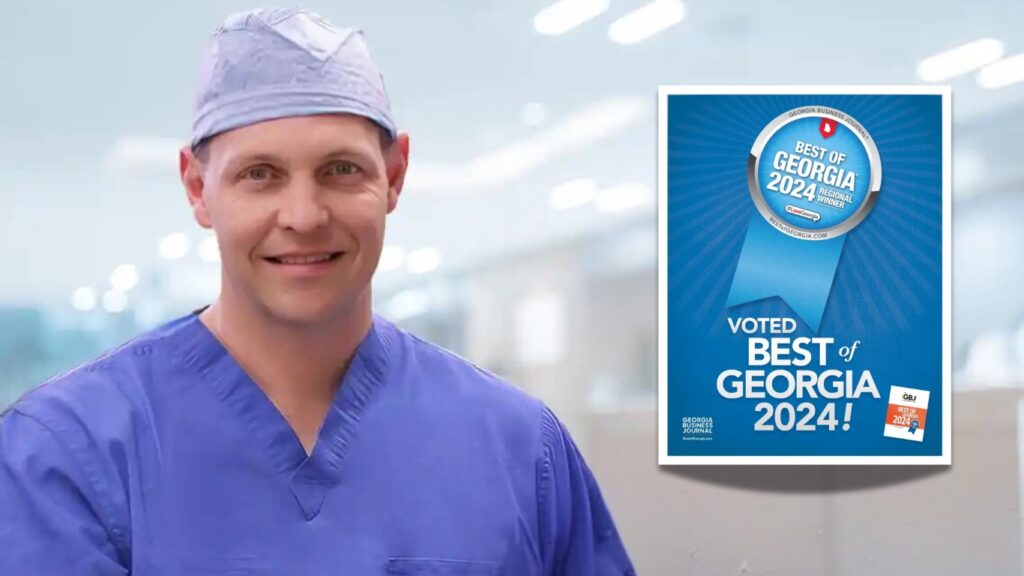Are you struggling with persistent heartburn, regurgitation, or chest discomfort? These could be the signs of Gastroesophageal Reflux Disease. Dr. Will Johnson offers comprehensive GERD treatment that combines lifestyle guidance, medication, and advanced surgical options to help patients regain comfort and digestive health. Under his expert care, patients can access cutting-edge GERD management solutions, including lifestyle modification, medications, and minimally invasive surgery for long-lasting relief.
In the United States, GERD affects nearly 20% of adults with symptoms like heartburn & acid reflux, and the prevalence increases with age, affecting almost 17% of individuals over 55.
Obesity is a significant risk factor that makes overweight individuals 2.5 times more likely to experience GERD.
What is GERD?
GERD (gastroesophageal reflux disease) is a long-term condition characterized by frequent backflows of stomach acid into the esophagus, resulting in symptoms consistent with heartburn at least two times a week. GERD is different from occasional acid reflux or heartburn, which is a one-time or infrequent event that causes discomfort and does not represent an ongoing health concern. Early detection and treatment of GERD is necessary to prevent complications such as esophagitis, Barrett’s esophagus, or even esophageal cancer from chronic cycles of acid damaging the additional lining of the esophagus.
How GERD is Different from Occasional Acid Reflux/Heartburn
Occasional Acid Reflux: This is an occasional or infrequent episode of heartburn or discomfort typically experienced after eating a meal or consuming too many beverages.
GERD: This is when the symptoms of acid reflux or heartburn have become more frequent (two times or more per week), continuous in nature, and interfere with your quality of life.
Impact: Occasional reflux may resolve with medication, whereas GERD requires professional evaluation and treatment.
What are the Signs & Symptoms of GERD?
There are several signs of GERD, some of which include the following:
- Recurrent heartburn: A feeling of burning in the chest that may be worse at night or after eating.
- Regurgitation: A bitter or sour taste in the mouth caused by acid coming up into the throat.
- Chest pain or discomfort: Sometimes confused with heart problems.
- Difficulty swallowing (dysphagia): A sense that food is stuck in the esophagus.
- Chronic cough, hoarseness, or sore throat: Caused by acid irritating the vocal cords and throat.
What are the Causes and Risk Factors of GERD?
Here are some causes and risk factors of GERD, including:
Causes and Pathological Factors
- Weakened Lower Esophageal Sphincter (LES)
- Hiatal Hernia
- Delayed Stomach Emptying
- Impaired Esophageal Clearance
Risk Factors
- Obesity
- Pregnancy
- Smoking
Certain Medications (Nonsteroidal anti-inflammatory drugs (NSAIDs), Calcium channel blockers, Tricyclic antidepressants, Sedatives, etc.)
GERD Diagnosis
Proper diagnosis is key to effective GERD management. Dr. William Johnson uses a combination of diagnostic approaches:
- Medical history and physical examination
- Endoscopy
- pH monitoring tests
- Esophageal manometry
Early and accurate diagnosis ensures that patients receive the most suitable treatment for their condition.
What are the GERD Treatment Options Available in Georgia?
Some of the treatment options for GERD include:
Lifestyle and Dietary Modifications
For mild to moderate GERD, many individuals experience improvement through lifestyle modifications:
- Weight: They can lose excess weight, which lessens the pressure on the abdomen and reduces reflux.
- Food: They can avoid spicy and/or fatty foods and/or limit acidic, caffeinated, or fizzy drinks.
- Meals: They can eat smaller meals and avoid lying down for a few hours after eating.
- Posture: They can raise the head of the bed and/or sit up after eating.
Medications
Their healthcare provider may recommend medical therapy to reduce acid reflux and protect the esophagus from injury:
- Antacids: quickly neutralize stomach acid.
- H2 blockers: used to reduce the amount of acid produced by the stomach, resulting in longer-lasting relief.
- Proton Pump Inhibitors (PPIs): the most potent acid-suppressing medications for acid reflux with some degree of healing of the esophageal mucosa.
Advanced Treatment and Surgery
If both lifestyle and medical therapies are unable to manage the symptoms of acid reflux, there are surgical options for long-term relief. Dr. William Johnson performs several advanced procedures, including:
Laparoscopic Fundoplication: a minimally invasive surgical option for tightening and strengthening the lower esophageal sphincter (LES).
LINX Procedure: A small magnetic device is placed around the LES to facilitate closure of the LES and reduce reflux.
Bariatric Surgery: Overweight patients with GERD can have significant improvement of reflux and weight loss with weight-loss surgery.
These procedures are designed to be safe, effective, and minimally invasive, enhancing recovery and promoting quality of life.
Why Choose Dr. Will Johnson for GERD Treatment in Georgia
There are several reasons to choose Dr. Johnson for GERD treatment in Georgia, some of which include the following:
- Experienced bariatric & gastrointestinal surgeon
- Expertise in minimally invasive GERD surgeries
- Personalized treatment plans
- Comprehensive medical support and care
